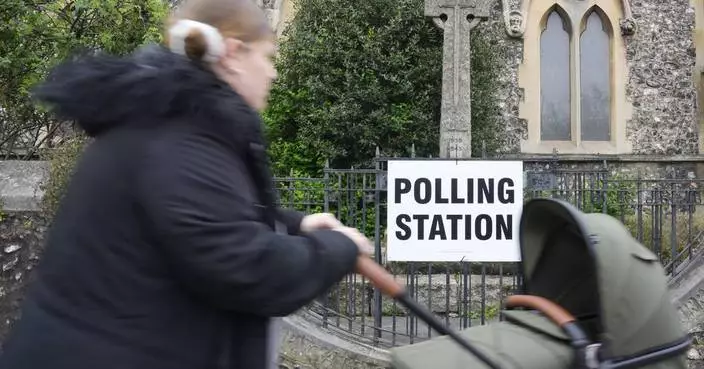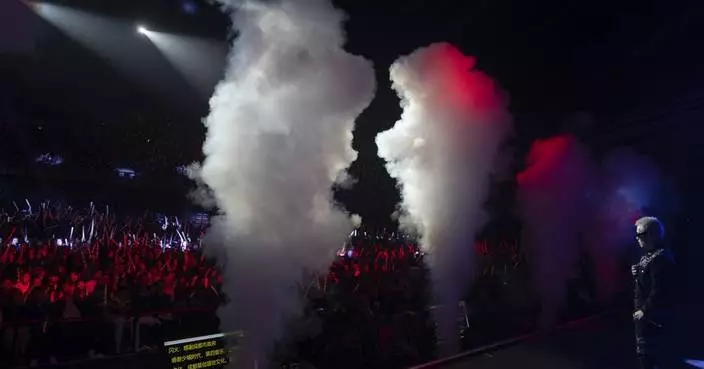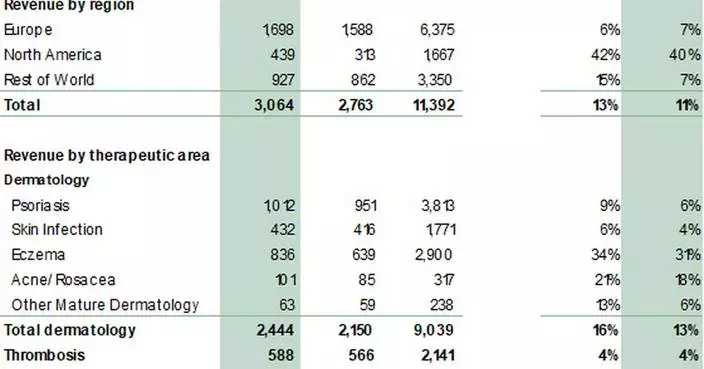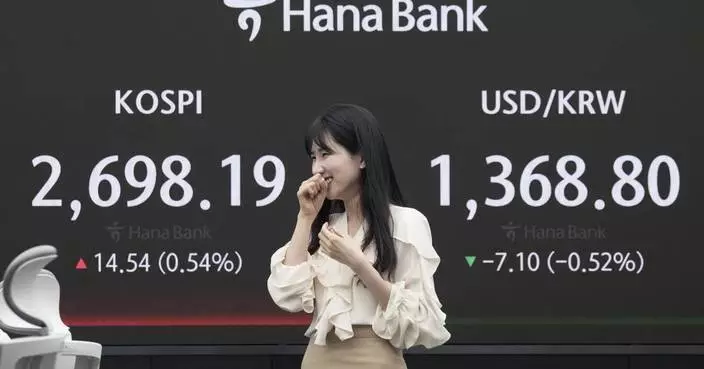SAN FRANCISCO (AP) — Jordan Montgomery's debut with the Arizona Diamondbacks went better than his tune-up starts in Triple-A.
The 31-year-old left-hander cruised through six innings against the San Francisco Giants, allowing one run and four hits with three strikeouts on 78 pitches on Friday night.
Montgomery was the last marquee free agent to come off the board, waiting until days before the season started to sign a one-year, $25 million deal with the Diamondbacks. He had two tune-up starts in Triple-A Reno before pitching in his first big league game this season, allowing nine runs in 7 2/3 innings.
Friday's outing was far better.
“I expect that every game," Montgomery said of his season debut. “I think sometimes you get in your own head in minor league games, and it’s not about executing anymore. You're aiming instead of ripping, and stuff gets bad when you start aiming. So I just needed to get in my element, and be out there and compete.”
Montgomery was on a pitch count of 80 to 85 pitches against the Giants, and manager Torey Lovullo kept a close eye on him. The only blemish on Montgomery's otherwise stellar outing was a solo home run by Jorge Soler in the fourth inning.
“Everybody, including me, talked about some of the struggles that people that don’t have a full spring training could potentially walk through,” Lovullo said. “He answered a lot of questions about his readiness and preparedness.”
Montgomery signed with the Diamondbacks a week after Blake Snell, the other big remaining free agent on the market, inked a two-year, $62 million contract with the Giants.
Coincidentally, the two faced eachother on Friday, with Montgomery making his debut and Snell – the reigning NL Cy Young Award winner – still seeking his first win after two poor outings. Both were represented by agent Scott Boras, who Montgomery fired following the lengthy free agency process.
“There are some similarities in what they’re both going through,” Giants manager Bob Melvin said.
Lovullo also acknowledged that not being able to pitch in spring training would probably affect both pitchers early in the season. He said that Snell, who was 0-2 with a 12.86 ERA in two starts entering Friday, “hasn’t been great.”
For Montgomery, he couldn’t face the same level of competition while his peers were getting feedback from big league hitters during spring training. He also wasn’t being evaluated by coaches had he been on a roster earlier.
“It’s hard to simulate a response from hitters when you don’t have hitters,” Lovullo said before the game.
Montgomery, in his eighth season, was coming off a 2023 campaign in which he set career highs in wins, innings and strikeouts. He had a stellar postseason with the Texas Rangers, who acquired him in a midseason trade. Montgomery went 3-1 with a 2.90 ERA in six playoff appearances — including five starts — that culminated in a World Series win.
“He's a huge addition to our team,” shortstop Blaze Alexander said. “We’re really, really excited — excited to have him and I’m excited to play defense behind him and just watch him.”
Montgomery is 38-34 with a 3.68 ERA in his career, spending his first six seasons with the New York Yankees. He had hopes of signing a long-term deal, but wound up on a short-term contract with the team that he helped beat in the World Series last year.
“I know that he’s been aching to be with us,” Lovullo said. “All the things that he had to do to get here and probably the nervous energy about it being his first start on April 19th, he managed it as good as you possibly could have hoped.”
He was part of a big offseason haul for the Diamondbacks, who also signed Eduardo Rodriguez, Joc Pederson and Randal Grichuk, and traded for Eugenio Suarez.
After the game, Montgomery was serenaded in the clubhouse to loud cheers.
“I’m glad I can make a good first impression," Montgomery said. "Being around these guys even for three days, they’re incredible. They made me feel welcome.”
AP MLB: https://apnews.com/hub/mlb

Arizona Diamondbacks pitcher Jordan Montgomery works against the San Francisco Giants during the third inning of a baseball game in San Francisco, Friday, April 19, 2024. (AP Photo/Jeff Chiu)

Arizona Diamondbacks pitcher Jordan Montgomery works against the San Francisco Giants during the first inning of a baseball game in San Francisco, Friday, April 19, 2024. (AP Photo/Jeff Chiu)

Arizona Diamondbacks pitcher Jordan Montgomery works against the San Francisco Giants during the second inning of a baseball game in San Francisco, Friday, April 19, 2024. (AP Photo/Jeff Chiu)
The military defector was killed in a hail of gunfire and then run over by a car in Spain. The opposition figure was struck repeatedly with a hammer in Lithuania. The journalist fell ill from a suspected poisoning in Germany.
Since President Vladimir Putin launched his invasion of Ukraine, attacks and harassment of Russians — prominent or not — have been blamed on Moscow's intelligence operatives across Europe and elsewhere.
Despite attempts by Western governments to dismantle Russian spy networks, experts say the Kremlin apparently is still able to pursue those it perceives as traitors abroad in an attempt to silence dissent. Opponents of Putin increasingly fear the long arm of Moscow’s security services, including in countries they once thought were safe.
“We just escaped Russia and had this illusion that we’ve escaped prison,” said journalist Irina Dolinina, who works for the independent outlet Important Stories, based in the Czech capital of Prague.
Dolinina and colleague Alesya Marokhovskaya were harassed in 2023, leading to fears they were under surveillance. They were sent threatening messages via comments on the media outlet's website and told not to travel to a conference in Sweden. To underscore the point, the threat included their airline ticket numbers, seat locations and hotel booking.
“It was a mistake for us to think that here, we are safe,” Dolinina told The Associated Press.
The Kremlin, which routinely denies going after its opponents abroad, has been blamed for decades for such attacks.
The most famous cases include Soviet revolutionary-turned-exiled dissident Leon Trotsky, who was killed in 1940 in Mexico after being attacked with an ice ax by a Soviet agent, and Georgi Markov, a dissident working for the BBC's Bulgarian language service, who died in 1978 in London after being jabbed with a poison-tipped umbrella.
Britain was the site of other poisonings blamed on Russian security services under Putin. Defector and former intelligence officer Alexander Litvinenko died after drinking tea laced with radioactive polonium-210 in 2006, and former spy Sergei Skripal and his daughter fell gravely ill but recovered following an attack with a Soviet-era nerve agent in 2018. The Kremlin repeatedly denied involvement in the British cases.
Now, with a full-scale domestic crackdown underway inside Russia, most of the Kremlin's political opponents, independent journalists and activists have moved abroad. There are strong suspicions, as well as accusations from officials, that Moscow is increasingly targeting them.
The breadth of those individuals pursued by Russia, “even if they look and sound completely insignificant,” is because Russian authorities believe they “might come back to the country and destroy it completely,” said security expert Andrei Soldatov.
There are multiple reports of exiles being persecuted not only in former Soviet countries with a large Russian diaspora but also in Europe and beyond.
Activists and independent journalists have reported symptoms that they suspect to be poisoning.
Investigative journalist Elena Kostyuchenko fell ill on a train from Munich to Berlin in 2022, and German prosecutors later said they were investigating it as an attempted killing.
Natalia Arno, the head of the U.S.-based Free Russia Foundation, told AP she still suffers from nerve damage after a suspected poisoning in Prague in May. She believes Russian security services tried to “silence” her because of her pro-democracy work.
In an especially brutal incident, the bullet-riddled body of pilot Maksim Kuzminov was found in La Cala, Spain, near the eastern port of Alicante, after being shot and run over with a car. Threats against him surfaced soon after he stole a Russian Mi-8 helicopter in August, flew it to Ukraine and defected.
Kuzminov, 33, became a “moral corpse” the moment he planned his “dirty and terrible crime,” said Sergei Naryshkin, head of Russia’s foreign intelligence service.
In March, Leonid Volkov, chief of staff to the late opposition politician Alexei Navalny, had his arm broken in a hammer attack in the Lithuanian capital Vilnius.
Lithuania's security service said the assault was probably “Russian-organized and implemented." On April 19, Polish police detained two people on suspicion of attacking Volkov on the orders of a foreign intelligence service.
In the decades Putin has held power, the Kremlin has denied multiple times that it is targeting its enemies at home and abroad. It has not commented on the suspected poisonings and Putin's spokesman, Dmitry Peskov, declined comment on Volkov's case, saying it was a matter for Lithuania's Interior Ministry.
Even fledgling anti-war groups find themselves in Moscow's sights.
Russians in Stockholm, Sweden, who in May 2022 formed one of the first organizations to support Ukraine and political prisoners, burned an effigy of Putin labeled “war criminal” outside the Russian Embassy.
Six months later, Russian authorities designated the group an undesirable organization, threatening members with fines and prison. Their relatives were visited at home in Russia by police, and their personal data was leaked, members told AP, speaking on condition of anonymity because of fears for their security.
The Russian Orthodox Tsargrad media outlet suggested the group’s members could be recruited by foreign intelligence services and dubbed them “terrorists.” The pro-Kremlin outlet warned them of a nasty surprise if they continued opposing the war.
Days later, while visiting relatives in St. Petersburg, a group member named Marina said a police car stopped right in front of her as she exited a shop. Three men got out, asked for her documents, forced her into the car and drove to a police station, siren blaring.
“It was really scary. How the hell did they know my exact location?” Marina told AP, declining to give her surname because she fears for her safety.
She was confronted with the leaked data and video of the embassy protest, and investigators demanded she identify other members of the group, reveal its funding source and asked her views on the war. One even questioned why she was leaving Russia before her father’s birthday -– making clear they knew the identity of her family.
She was charged with an administrative violation, usually punishable by a fine. As police prepared to drive her to her parents’ apartment, it was suggested she “cooperate” and become an informant if she wanted to see her family again without fear of detention, Marina said.
“It’s a known modus operandi for Russian intelligence and the Russian regime to follow opponents in the Russian diaspora in other countries and subject them to different types of harassment or intelligence work,” Fredrik Hultgren-Friberg, spokesperson for the Swedish Security Service, told AP.
Soldatov said the Kremlin is going after a wide range of opponents because it fears pro-Western uprisings like those in Georgia and Ukraine and wants to prevent the seeds of dissent from growing into “something new.”
Even though Western countries expelled hundreds of Russian spies in coordinated actions after the 2018 poisoning of the Skripals and the 2022 invasion of Ukraine, Russians abroad say they are concerned Moscow still can reach them.
Marokhovskaya, the investigative journalist in Prague, received anonymous threats, including one indicating close surveillance that said, “We’ll find her wherever she walks her wheezing dog.”
She and Dolinina told AP they experienced such observation inside Russia, including after publishing award-winning investigations of corruption in Putin’s family.
After moving to Europe, Dolinina said she initially thought she was experiencing “constant paranoia.” When she got the anonymous threats and was followed on Prague's streets, however, she realized the fears were well-founded.
Neither journalist has concrete proof that Russian security services targeted them, but they said they believe the personal data -– flight information, passport numbers and home addresses -– and physical surveillance were likely orchestrated by a state actor.
“I was really shocked that it’s happening in Europe,” Dolinina said.
Although the many incidents the West blames on the Kremlin fuel speculation that Moscow still can intimidate Russians abroad, not everyone has been silenced.
“This is not the reason to quit,“ Marokhovskaya said. "It’s the reason to keep working.”

FILE - Russian defector Maksim Kuzminov attends a news conference in Kyiv, Ukraine, on Tuesday, Sept. 5, 2023. Spanish police say the bullet-riddled body of a man found in a Spanish town was that of Kuzminov, 33, who flew a Russian military helicopter across the front lines into Ukraine last year. Sergei Naryshkin, head of Russia's foreign intelligence service, said Kuzminov became a "moral corpse" from the moment he planned his "dirty and terrible crime." (AP Photo/Vladyslav Musiienko, File)

FILE - Leonid Volkov, chief of staff for the late Russian opposition leader Alexei Navalny watches a session of the European Parliament in Strasbourg, France, on Dec. 15, 2021. Volkov had his arm broken by an attacker wielding a hammer in Vilnius, Lithuania, in March. Lithuania's security service said the assault was probably "Russian-organized and implemented." (AP Photo/Jean-Francois Badias, File)

FILE - Yulia Skripal poses during an interview in London, on Wednesday, May 23, 2018. She and her father, Sergei Skripal, were found slumped on a bench in Salisbury, England, in March 2018. Sergei Skripal lived there after being released from prison in Russia in a spy swap. British investigators said they had been poisoned with a Russian-developed nerve agent and blamed Moscow for the attack. Moscow denied the allegations. (Dylan Martinez/Pool via AP, File)

FILE - Police officers guard a supermarket parking facility near where former spy and defector Sergei Skripal and his daughter were found critically ill following exposure to the Russian-developed nerve agent Novichok in Salisbury, England, on Tuesday, March 13, 2018. The British government accused Russia of attempted murder in the poisonings. Two men identified by authorities as carrying out the attack denied any involvement and told Russian television they were simply tourists. (AP Photo/Matt Dunham, File)

FILE – Russian defector Alexander Litvinenko, a former operative for the KGB and FSB, is seen at his home in London, on Friday, May 10, 2002. Litvinenko was viewed as a traitor by the Kremlin after fleeing to Britain in 2000. He died after drinking tea laced with radioactive polonium-210 at a hotel in London. On his deathbed, Litvinenko claimed that Russian President Vladimir Putin directly ordered his assassination. A British inquiry later found that Russian agents had killed Litvinenko, probably with Putin's approval. (AP Photo/Alistair Fuller, File)

















